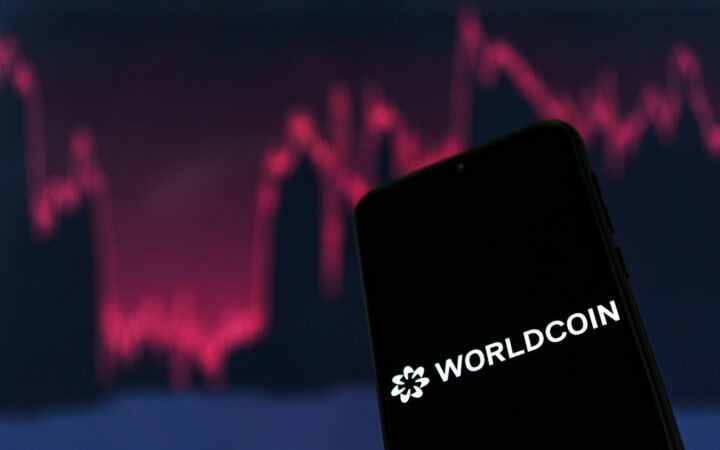During the token’s launch, the circulating supply was limited to 143 million tokens, with 43 million of the asset reserved for early adopters and 100 million provided as loans to non-US market makers.
The highly anticipated crypto token, Worldcoin ($WLD), co-founded by OpenAI’s CEO Sam Altman, made a splash on its first day of trading as investors rushed to be part of the artificial intelligence (AI) hype. $WLD’s value skyrocketed from its initial price of $1.70 to a high of $3.58 before settling at $2.52, according to CoinMarketCap data. Trading volume reached nearly $350 million on various exchanges, including Binance, Bybit, and OKX.
Worldcoin’s impressive surge coincided with the release of its whitepaper, shedding light on the token’s tokenomics and underlying principles. According to the document, the total supply of $WLD tokens is capped at 10 billion for the first 15 years of the network’s existence. After this period, voters may decide to introduce a 1.5% inflation rate.
Worldcoin Not Available to Users Globally
According to a Decrypt report, concerns have been raised over the discrepancy between the total supply of 10 billion tokens and the initial circulating supply of 106 million $WLD tokens, valued at around $219 million. Industry experts, such as Tom Dunleavy, the founder of Alethia, have expressed concerns, pointing out that projects with similar tokenomics have been susceptible to quick sell-offs.
“Most tokens that have a small amount of distribution or a large fully diluted valuation have shown themselves to be easy targets for quick sell-offs. The history of airdrops, in general, has not been favorable,” said Dunleavy.
Worldcoin aims to establish itself as a financial and identity network, offering an app for payments and utilizing biometric data from “shiny, metal orbs” to create unique World IDs. This approach has sparked controversy, raising concerns over privacy and the availability of the whitepaper.
The report also disclosed that the whitepaper was not accessible in the US and UK but was available in Colombia, despite the ability for users to verify their identity in multiple regions. The lack of accessibility has led to further scrutiny.
Worldcoin Launch Relies on Market Maker Loans
During the token’s launch, the circulating supply was limited to 143 million tokens, with 43 million of the asset reserved for early adopters and 100 million provided as loans to non-US market makers. These loans have a three-month duration and allow market makers to buy $WLD tokens instead of returning them.
The agreement with market makers has received mixed reactions. Sadettin Kerim, a digital assets product manager at Yapı Kredi, believes it offers them an advantage, allowing them to manipulate prices.
“The agreement is an absolute win for market makers. If they do not face a huge market demand, they will easily dip the price and then buy it back. It’s easy money for them,” Kerim told Decrypt.
Conversely, Dunleavy considers it speculative in the medium to long term, with no incentives for market makers after the three months.
75% Worldcoin Token to be Distributed among the Community
The whitepaper also outlined the allocation of $WLD tokens, with 75% going to the Worldcoin community over time. The rest is divided among the initial development team, investors, and a reserve of 170 million $WLD. The allocation to insiders increased to 25% due to the complexities and costs of developing and launching the network, as stated in the revised whitepaper.
Additionally, Bruno Faviero, co-founder and CEO of Magna, a token distribution platform, finds the low circulating supply, mainly in loans, difficult to gauge in terms of community response.
Despite the challenges and controversies surrounding Worldcoin, the project managed to verify the identities of more than 2 million people in 35 countries using biometric data. However, it’s worth noting that while World ID verification is available worldwide, $WLD trading is restricted in the US and other territories.
 coinspeaker.com
coinspeaker.com
